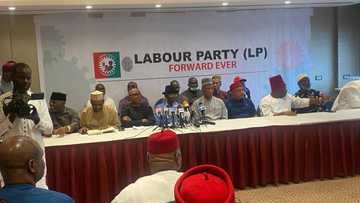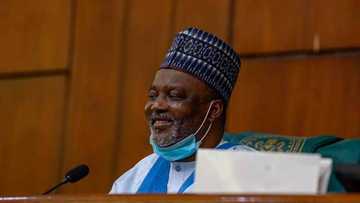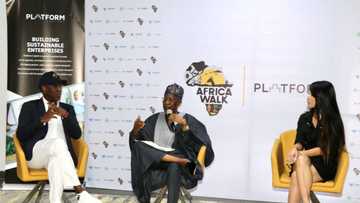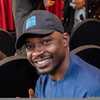How Nigerian Youths Are Fast Becoming Political Mavericks, by Gidado Yushau Shuaib
Editor's note: In this piece, Gidado Shuaib gives us a rundown of his personal encounter and observation of the keenness and zest of Nigerian youths in the affairs of politics in the build-up to the 2023 general elections.
PAY ATTENTION: Click “See First” under the “Following” tab to see Legit.ng News on your Facebook News Feed!
“My notion of democracy is that under it, the weakest shall have the same opportunities as the strongest. Western democracy, as it functions today, is diluted fascism. True democracy cannot be worked by twenty men sitting at the centre. It has to be worked from below, by the people of every village.” - Mahatma Gandhi
In the last few weeks, the question between the lips of every Nigerian has been who will win the 2023 presidential election. Nigerian youths, in particular, are now actively in tune with the goings-on in the country. On the other leg, most politicians are hoping to score cheap political points by sensitizing Nigerian youths on the need to exercise their fundamental rights as citizens.
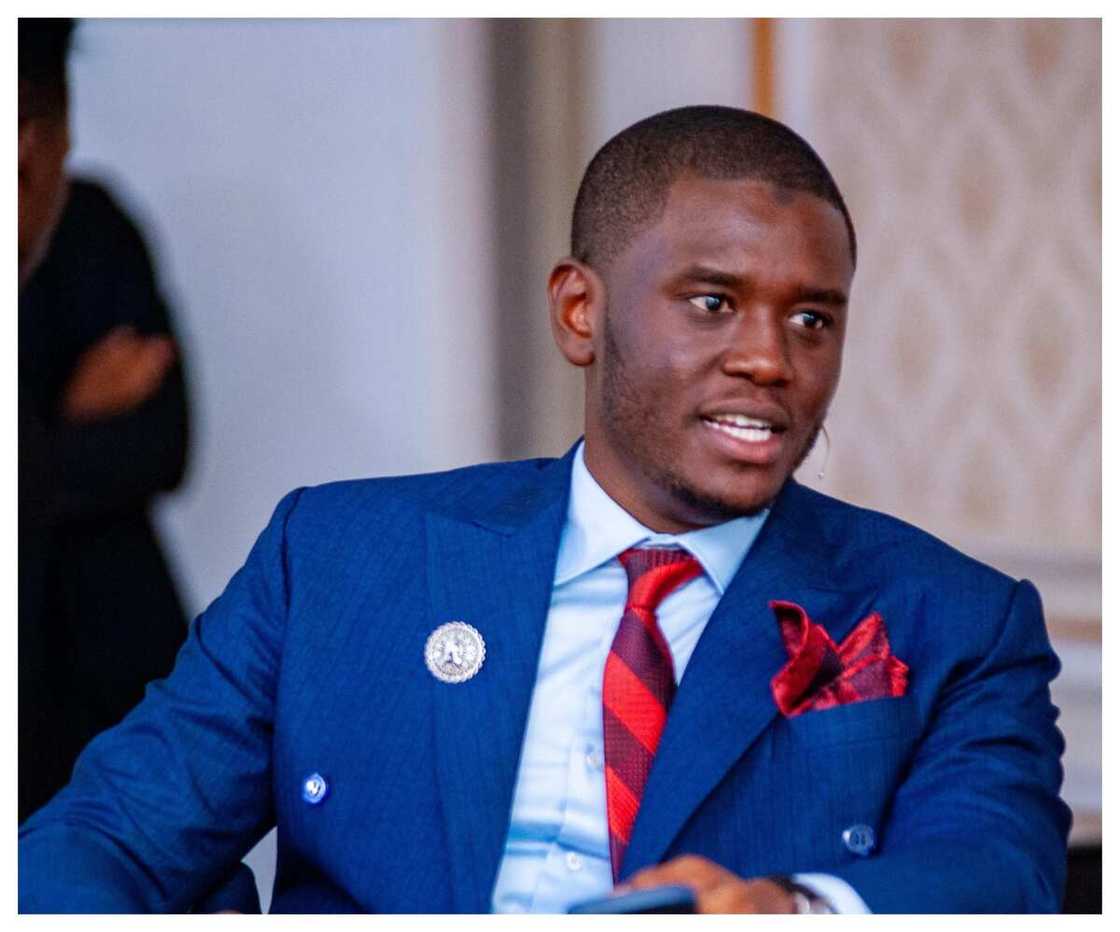
Source: Facebook
I came face to face with this pulse while dissecting issues surrounding the 2023 elections during a new TV program hosted by myself and the founder of CEOS network, Alli-Bob Cinwon, titled "Let's talk about Nigeria's next president." Also, as I walked round Ilorin, Kwara State where I had gone to meet the APC Senatorial Candidate for Kwara Central and Turaki of Ilorin, Mallam Saliu Mustapha, during the Sallah break, I observed that everybody was talking about politics.
It is trite to say that the recently concluded governorship election in Osun State is a litmus test for the incoming 2023 elections. The gusto and candour exhibited by the Osun electorate to uproot an incumbent governor speak volumes about what will transpire in the 2023 elections. Many pundits interpreted the Osun defeat to mean that many Nigerians are tired of the ruling APC. Others were however quick to dismiss this assumption, claiming that a crack within the APC led to the fall of the party in the state.
PAY ATTENTION: Follow us on Instagram - get the most important news directly in your favourite app!
The purveyors of this assumption cited the rift between Interior Minister Rauf Aregbesola and Governor Gboyega Oyetola as the reason for the defeat.
Across board, INEC voters’ registration is increasing and queues are growing in registration centres, despite growing insecurity and hunger in the land. Recent statistics by the Independent National Electoral Commission revealed that the total number of fresh registrants for Permanent Voters Card (PVC) stands at 10,487,972, while completed registration was 9,455,198 (90.1%).
Out of these figures, 3,314,169 (31.5%) were done online, while the physical registration was around 6,141,029 (58.5%). According to the statistics, youths between 18 to 35 ages accounted for 6,698,446 (63.8%) of the new registrants, while People Living with Disability (PLWD) were 71,998 (0.68%).
Thanks to many political think tanks who are earnestly working towards ensuring that Nigerians have not only a say but a stake in deciding who holds political offices in the next regime. It is on record that the Transition Monitoring Group (TMG), for instance, did a lot to mobilise youths to get their PVCs so they could actively participate in the forthcoming elections.
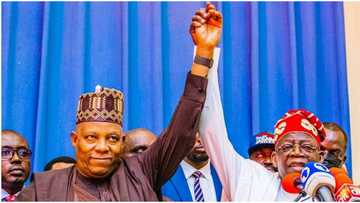
Read also
Muslim-Muslim Ticket: Anglican Church issues strong statement against APC, Tinubu over choice of Shettima
These prospective voters are having their eyes fixed on the centre – the presidency – from which governance majorly precipitates to the grassroots. These Nigerians are so eager to know who eventually occupies the number one seat out of the many contenders we now have.
Nigeria has 18 registered political parties but 16 parties are in the race for the presidential seat. However, 4 out of these 16 political platforms have dominated discourse, majorly due to their popularity in terms of membership and the personalities (candidates) bearing their flags.
This is in no way suggesting that the other parties do not have a large membership base or popular candidates, but the major platforms dominating discourse are the All Progressives Congress (APC), Peoples Democratic Party (PDP), New Nigeria Peoples Party (NNPP), Labour Party (LP) and African Action Congress (AAC).
These five political parties and their forerunners all stand good chances of winning the much-coveted seat, mainly because many Nigerians are yearning for a change in the country’s state of affairs.
One of the many reasons behind this yearning for change includes the ongoing industrial action by the Academic Staff Union of Universities (ASUU). Since February 14, the university lecturers are on strike and the federal government has yet to accede to their demands.
What this means is that Nigerian university students have been at home for five months. It is only natural that the situation will make students angry, hence their resolve to channel their energy into political activities to change their destiny.
Another reason for the sudden desire for change includes a bleeding economy. The Nigerian economy is currently in the doldrums. Nigerians are seeing their purchasing power dropping daily amid rising inflation and a national currency that cannot hold its own against the dollar.
Insecurity is another big problem Nigeria is facing today and young Nigerians are bearing the brunt. A lot of young people in the country have been victims of banditry, kidnapping, armed robbery, and terrorist attacks in the last few years. Millions of hard-earned money have been paid as ransom to free kidnap victims who were abducted either on their way to school, NYSC camp or even in their places of work.
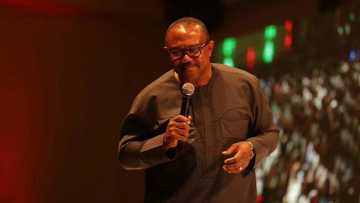
Read also
ADC chieftain reveals what will happen to Peter Obi, Labour Party supporters months before 2023 elections
The recent off-season elections in Ekiti and Osun show that votes now count so young Nigerians have developed confidence in the country’s electoral system. The Bimodal Voter Accreditation System, an electronic device designed to read Permanent Voter Cards and authenticate voters, has also helped in boosting the confidence of voters.
Perhaps the most important is that Nigerians are tired of recycling leaders. Young Nigerians are now resolute in voting in ‘able-bodied’ leaders who have age and experience on their side to be able to deliver the dividends of good governance.
At any rate, Nigerians should go into the 2023 elections with unity of purpose, taking away all shades of primordial sentiments and ephemeral desires. Only electing competent leaders will guarantee a united Nigeria.
The elected leader must believe in the indivisibility of the country, just as the electorate, too, must provide their support towards actualising the set objective.
Finally, it is foolhardy to assume or suggest that any single leader can unite Nigeria without commensurate efforts of citizens to the cause. To unite Nigeria, there is a place for leadership, and there is a place for followership. Overall, uniting Nigeria involves Nigerians from all strata.
Disclaimer: The views and opinions expressed here are those of the author and do not necessarily reflect the official policy or position of Legit.ng.
Your own opinion articles are welcome at info@corp.legit.ng— drop an email telling us what you want to write about and why. More details in Legit.ng’s step-by-step guide for guest contributors.
Contact us if you have any feedback, suggestions, complaints, or compliments.
Source: Legit.ng

